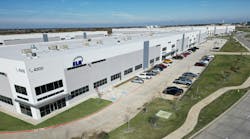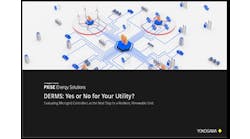Siemens Stiftung has launched a competition that offers awards for innovations that help impoverished areas with basic supplies, including energy.
The empowering people competition, kicked-off this week in Munich, invites inventors and developers to submit low-tech innovations in one of eight categories: water & waste water, energy, food & agriculture, waste Management, healthcare, sheltering, education and information & communication.
Winning technologies will have the capacity to embed in entrepreneurial models that provide sustainable help to individuals and communities in developing regions.
“The goal of the contest is ultimately to empower people in developing regions to have access to basic services for their daily needs,” said Rolf Huber, managing director, Siemens Stiftung. “We want to locate creative solutions and we are eager to work with innovative teams to bring their solutions to the lives of those who need them most. Since our first award in 2012, we were able to support dozens of initiatives. In addition, our network partners of engineers from various fields and social business experts around the world help them maximize their impact.”
An interdisciplinary and international jury will evaluate entries. Winners will receive expert evaluations and cash prizes. The first place winner will be awarded $56,045; second place $33,619; third place $22,418 U.S. In addition, 20 runners-up will be awarded a sum of $5,604.
In addition to the prize money, the solutions will be showcased and promoted in a Solutions Database, with the inventors and entrepreneurs behind the innovations becoming part of a broader empowering people network. This community, created and facilitated by Siemens Stiftung, consists of developers and social entrepreneurs from around the globe. Members of the network benefit from training sessions on relevant topics for their businesses as well as expert support for their organizational or technical developments. Regular online and offline meetings enable the creation of synergy and cooperation between inventors and players of the ecosystem who span the globe.
The deadline for entries is midnight EST on November 30, 2015.
Further information is available on www.empowering-people-network.org.
Track similar funding opportunities by subscribing to our Energy Efficiency Markets newsletter. It’s free.






